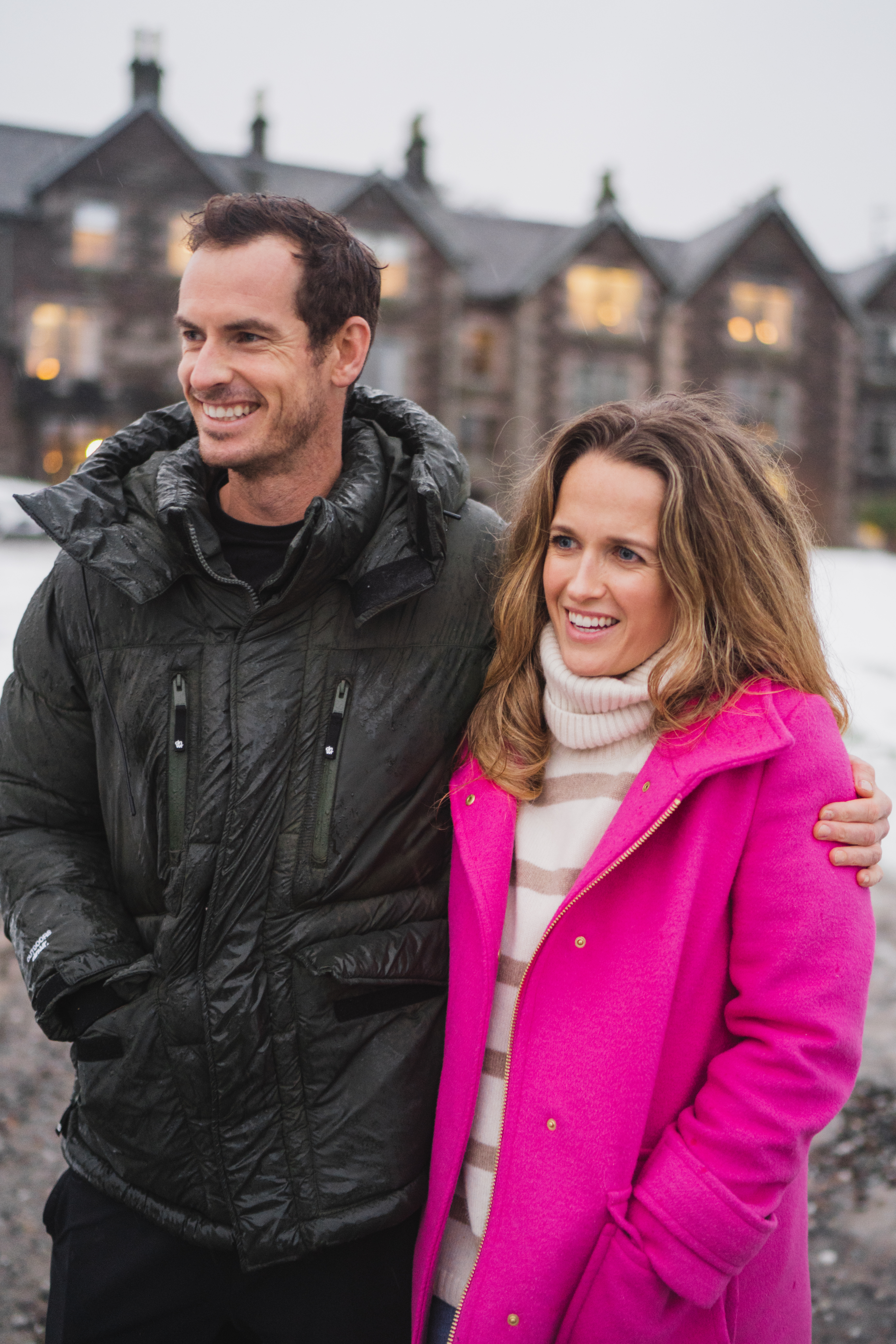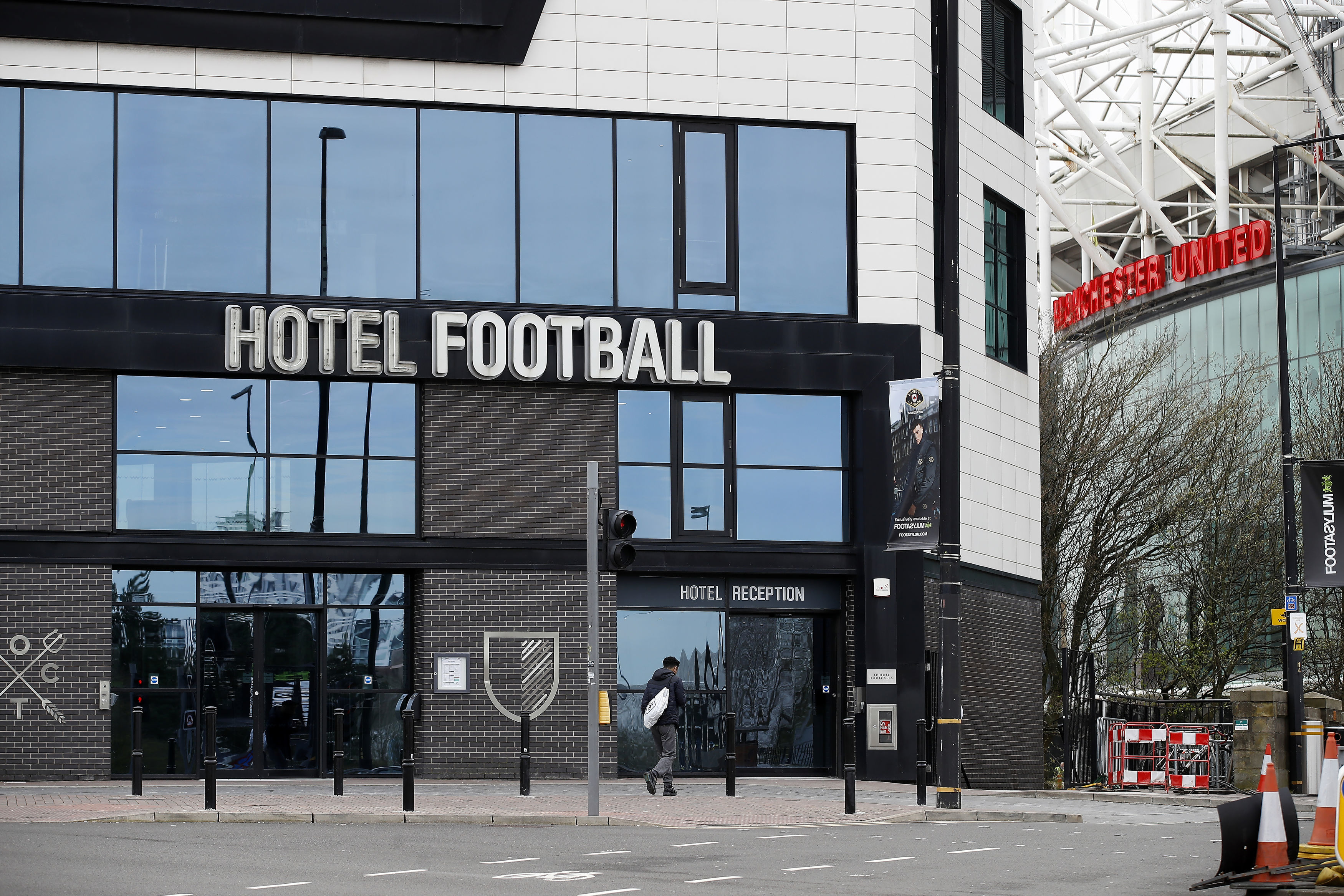Luxury Hotel Success
Sir Andy Murray's Cromlix Hotel in Dunblane, Perthshire, has secured a spot as one of the top celebrity-owned businesses in the UK.
Bought in 2013 by the tennis star and his wife Kim, both 36, the luxury venue has received high praise, with 63% of customers rating it as "excellent," according to research by Wealth of Geeks.
Top Rankings
Cromlix Hotel, with its 15 bedrooms, was awarded the prestigious title of Hotel of the Year at the Scottish Thistle Awards last December, solidifying its position as a top contender in the celebrity-owned business realm.
Ranked fifth overall, it outperformed other notable establishments like Hotel Football in Manchester, owned by former Man United players Ryan Giggs and Gary Neville.

Other Celeb Ventures
Sir Ian McKellen's pub and restaurant, The Grapes, in Limehouse, East London, clinched the top spot on the list, followed by Charlotte Church's wellness retreat, The Dreaming, in central Wales.
Additionally, ex-Chelsea footballer Ziyech's Taco Taco restaurant in East London and actor Adam Rickitt's craft beer bar in Cheshire claimed the third and fourth positions, respectively.
Andy Murray's On-Court Quirks
Meanwhile, Andy Murray opened up about his unconventional on-court behavior following a successful Miami Open match against Matteo Berettini.
Addressing inquiries from his former doubles partner and now SkySports pundit Laura Robson about his peculiar on-court demeanor, Murray candidly admitted, "I'm not a robot. I'm a bit odd. I'm a bit strange. But I play better when I'm like that."

For all the latest news and updates, visit the Scottish Sun football page.
Frequently Asked Questions
What type fitness training is most important for tennis athletes?
Tennis is a demanding sport, requiring a combination of anaerobic fitness and aerobic endurance as well speed, strength, power, and agility. Tennis fitness training involves cardiovascular exercises that improve endurance and strength, plyometrics exercises and explosive movements for speed and power as well as agility exercises designed to improve footwork. Exercises that improve core stability and balance are essential to building the endurance and coordination needed for tennis.
How does a tennis player manage school and training?
Balancing academic responsibilities and intense training schedules is a significant challenge for aspiring tennis players. This requires good time management skills, prioritization and creative scheduling. Online learning and flexible academic programmes can help young athletes accommodate their demanding training schedules and travel plans. Support from parents, coaches and educational establishments is essential to ensure that players can achieve their goals while maintaining their education.
How important is it to compete in junior tournaments for a career in professional tennis?
Competing in junior tournaments is a crucial step in the journey to a professional tennis career. These tournaments give young athletes the chance to compete against peers, gain valuable experience in matches, and learn how to deal with the mental demands of competitive play. Junior tournaments are also a great way to prepare for higher-level competitions. They can have a significant impact on a players ranking, their visibility to sponsors and coaches, and even how they develop as a person.
How important is nutrition to becoming an elite tennis competitor?
Nutrition and diet are vital for any athlete aiming to perform at the highest level, and tennis players are no exception. Dietary intake is important for intensive training because it provides energy, facilitates recovery and reduces the risk of injury. An elite player’s diet typically includes a balanced mix of carbohydrates, proteins, and fats, along with essential vitamins and minerals. Hydration is another critical aspect, as maintaining good fluid balance is crucial to prevent fatigue and maintain concentration during play.
What age should a young player start training in order to be a professional footballer?
While there is no set age to begin training for professional tennis, starting at a young age does provide an advantage. Many professional players start their training between ages 4-7. Early development is crucial for players to develop a solid base of skills, coordination, and technique. However, it’s crucial to balance training with general childhood development to nurture a passion for the game without causing burnout or injury.
Statistics
- Studies show that superior agility and speed among tennis players can reduce their reaction time by up to 30%, which is crucial during high-level matches.
- Persistent mental training and sports psychology can help reduce performance anxiety by up to 60%, according to sports psychologists working with elite athletes.
- Research indicates that junior tennis players who compete in international tournaments gain significant psychological advantage and experience, with participation leading to a 50% better transition into professional rankings.
- Engaging in structured video analysis sessions has been shown to improve a player’s tactical decision-making by approximately 35%.
- Approximately 70% of a professional tennis player’s training time is devoted to developing technique and on-court strategies.
External Links
tennisfitness.com
usta.com
wilsontennis.com
optimumtennis.net
itftennis.com
How To
How to improve endurance for long Tennis matches
For long tennis games, both aerobic and aerobic exercise is required. Begin by incorporating moderate-intensity cardio exercises, such as cycling or running, into your daily routine to increase aerobic capacity. Add high-intensity interval training (HIIT) to your routine to increase anaerobic threshold. Simulate match conditions on the court by engaging in extended baseline rallies, and practice matches that are focused on consistency and long points. Include core strengthening exercises as a solid core is crucial to your endurance on court. Focus on recovery and nutrition for high performance.

